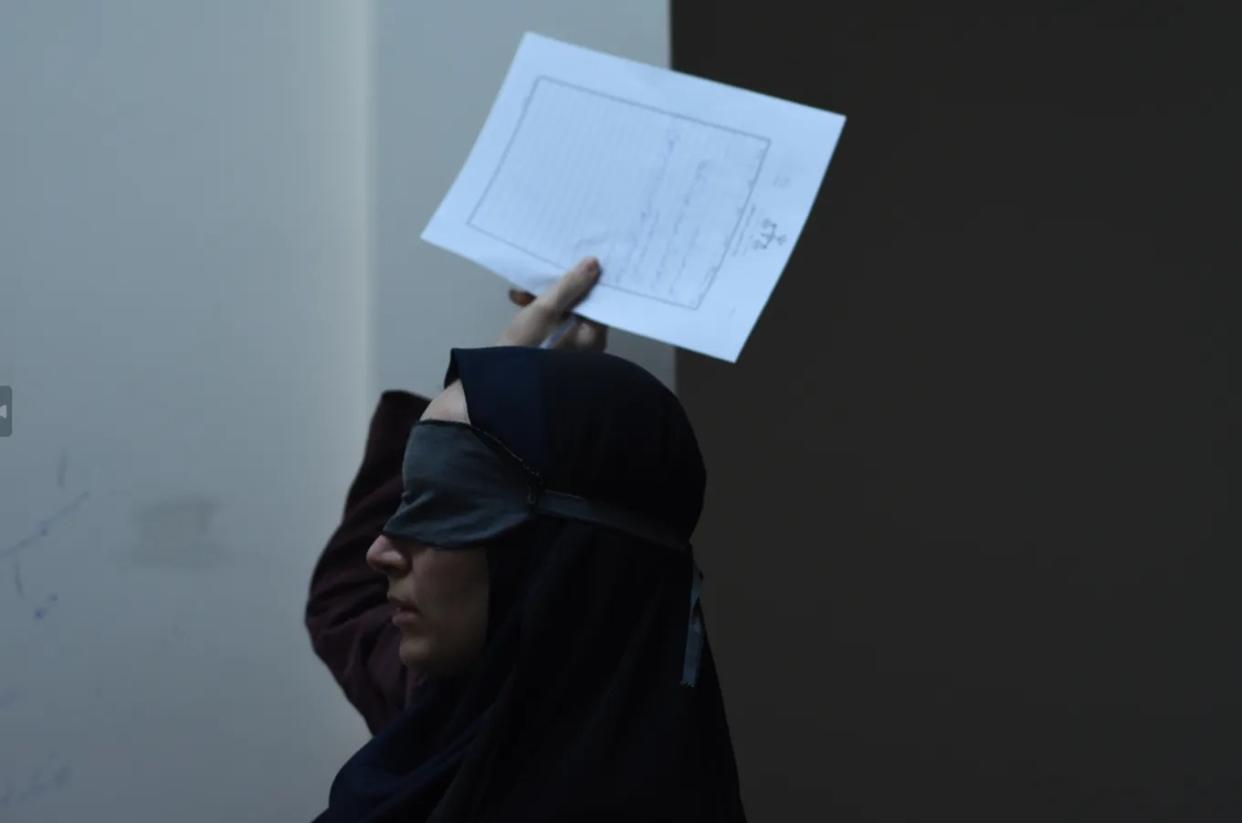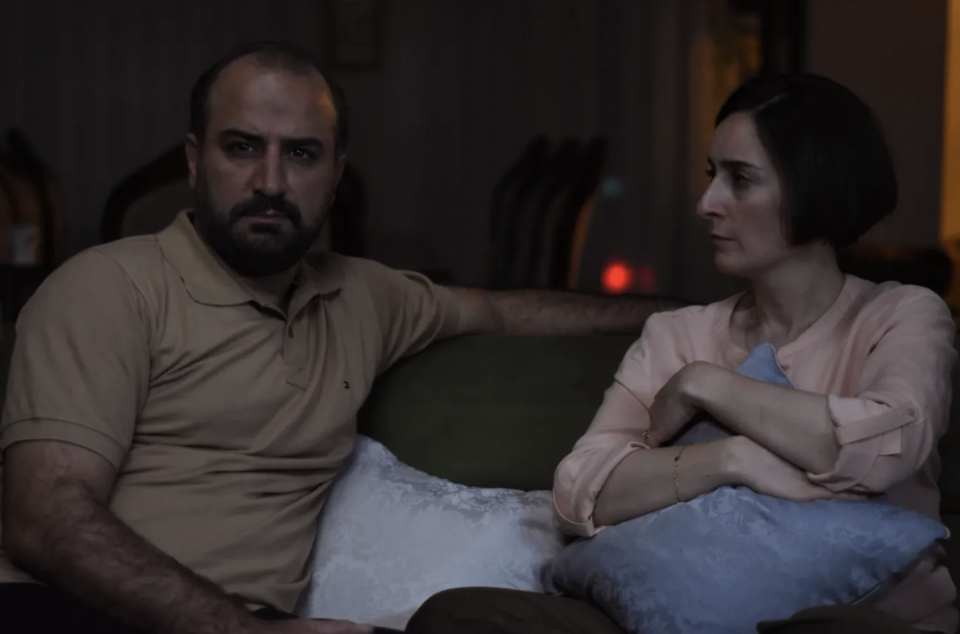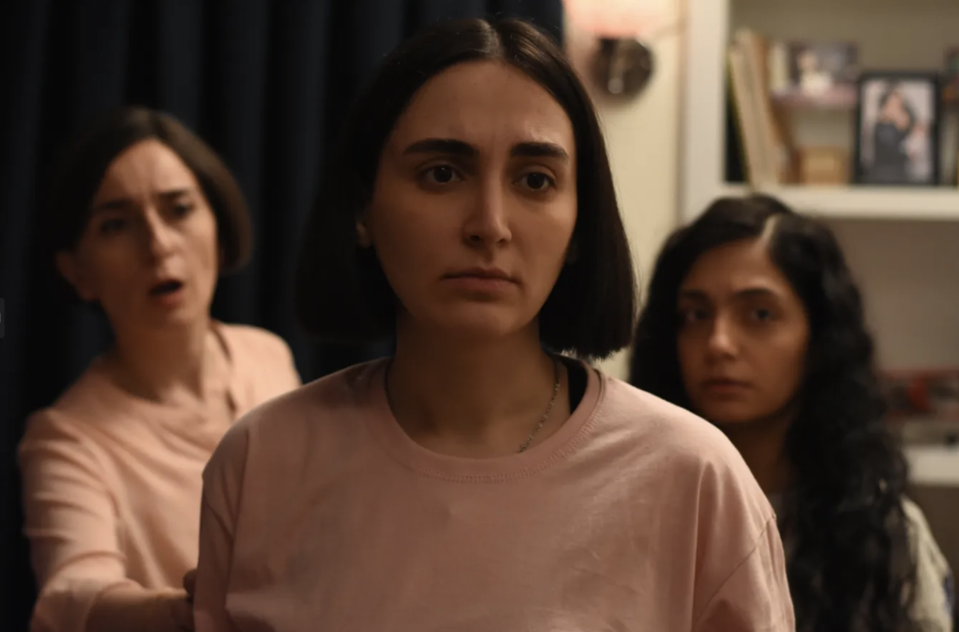‘The Seed of the Sacred Fig’ Review: Mohammad Rasoulof Emerges from Iran with a Shattering Domestic Thriller About Patriarchal Violence


“The Seed of the Sacred Fig” is an anguished cry from the heart of Mohammad Rasoulof, the Iranian filmmaker who just fled his home country for Europe after an eight-year prison sentence from the Islamic Republic. This is not the first brush with theocratic law for the dissident director, who’s been working steadily out of Iran for two decades.
So while Iran will never, ever submit his deeply unsettling latest masterwork for the Best International Feature Oscar — often the only harbinger of anti-establishment Middle Eastern films making their way to the U.S. — this searing domestic thriller deserves the widest audience possible. With the brutal 2022 killing of Mahsa Amini by government hands as his launching point, Rasoulof crafts an extraordinarily gripping allegory about the corrupting costs of power and the suppression of women under a religious patriarchy that crushes the very people it claims to protect.
More from IndieWire
“Sacred Fig” arose out of Rasoulof’s incarceration in 2022 — right on the cusp of the Woman, Life, Freedom uprising Amini’s death inspired — in Evin Prison in Tehran, where he was jailed for speaking out against the Iranian government. Rasoulof, also writing the screenplay and having shot this film entirely in secret and at risk of the cast’s lives, begins this story with Iman (Misagh Zare, currently banned from leaving Iran). He’s a father of three, deeply entrenched in his faith and loyalty to the government, as he’s just been appointed to the very Revolutionary Court that most recently sentenced Rasoulof himself. His wife Najmeh (Soheila Golestani, also banned from leaving Iran and herself jailed two years ago amid Women, Life, Freedom protests) is subservient to the letter. Iman’s daughters, Rezvan and Sana (Mahsa Rostami and Setareh Maleki, respectively, and both actors Rasoulof deliberately cast as older than their characters for their own safety), are less bound to tradition and domestic equilibrium.
While “Sacred Fig” never explicitly names the young woman who dies, as shown in newscasts and across actual protest footage, she’s a stand-in for Amini. Rezvan and Sana, who share a bunk bed in the family’s cramped Tehran apartment, participate in the protests in their own way: by offering safe harbor to a classmate, Sadaf (Niousha Akhshi), who’s been arrested. Najmeh, who is keen on keeping her presence in their home a secret from Iman on the eve of his promotion, tends to the girl’s wounds after she’s been brutally attacked by police in the chaos.
Rasoulof, working with cinematographer Pooyan Aghababaei to create the film’s unfussy widescreen look, holds the camera close on Sadaf’s mangled face, her left eye bruised and bloodied and swollen. This is Rasoulof showing us in visceral terms what likely happened to Amini herself, whose death authorities ascribed to a stroke while in hospital. The movie makes mention of this, too, and it’s a pack of authoritarian-fed lies Najmeh is all too eager to believe.

Iman, meanwhile, is the target of protesters of his own after signing death indictments of supposed dissidents, as led by his Revolutionary Court employers. But pressures mount when his service gun goes missing. It’s not in the nightstand, where Najmeh put it, nor in a pile of laundry, where Reza stashes it at one point. The gun’s misplacement is punishable with up to at least three years in prison, and obviously puts Iman’s Court appointment in jeopardy. This Rasoulof’s gun, if you will — fired only once much later in the film — becomes a symbol of power pased from hand to hand, and a tool that lays bare the already long-seated discord beneath the surface of Iman’s family. Its vanishing slowly starts to send the entire family off its axis. “Sorry I didn’t wake up to prepare your breakfast,” Najmeh says at one point. But their long-held customs were already coming loose anyway.
The gun’s disappearance sends Iman into a paranoid panic, first forcing his daughters and wife into a harrowingly staged, blindfolded interrogation to suss out the culprit. And then worse. As “The Seed of the Sacred Fig,” which enthralls you throughout its entire near-three-hour running time, unwinds, the movie descends deeper into domestic thriller terrain. Here, a family is pitted against their patriarch and each other as he unravels, Iman eventually taking them to his remote childhood home and going to extreme measures to make somebody, anybody, confess to stealing the gun. En route, their car is trailed by two protestors who are after Iman, and it’s shocking the way Rasoulof careens as recklessly as that car is run off the road into showing how far Najmeh is willing to go to her abet her husband’s rage.

Each of the performances here, understated and never melodramatic, is inherently brave for the way the actors risked their lives to participate in the film at all. A number of the cast and crew have been threatened by the Iranian government to pressure the Cannes Film Festival into dropping the movie, or else. There are other acts of bravery, like the way Rasoulof shows women indoors not wearing their veils, for once. Other, less politically resistant Iranian films often show women inside in hijab, which is highly unrealistic and likely a mode of appeasing censors.
Rasoulof emerged from prison wondering why he should make another movie at all when the odds are always stacked against him. In 2020, Iran banned him from attending the Berlinale premiere of his Golden Bear-winning “There Is No Evil.” Similarly, he was invited to serve on the Cannes jury in 2023 but was also banned from participating. While in the Evin Prison, Rasoulof met a staff member with a pang of conscience over holding political prisoners but who lacked the courage to defy a job he hates. That signaled to Rasoulof that movements like Women, Life, Freedom have some chance at success against repression, and that the government will ultimately surrender to their demands.
Which makes “The Seed of the Sacred Fig,” even as it ends in a shattering denouement where you know nothing good awaits anybody here after the last searing cut to black, an ultimately hopeful allegory despite its lack of resolution. Iran is never going to support this movie. It’s up to the rest of the world to do so.
Grade: A-
“The Seed of the Sacred Fig” premiered at the 2024 Cannes Film Festival. Neon will release the film stateside later this year.
Best of IndieWire
Sign up for Indiewire's Newsletter. For the latest news, follow us on Facebook, Twitter, and Instagram.
